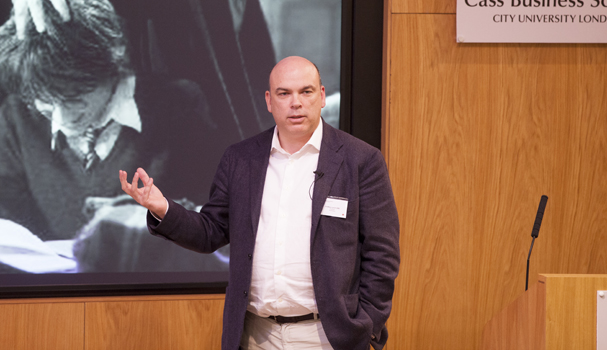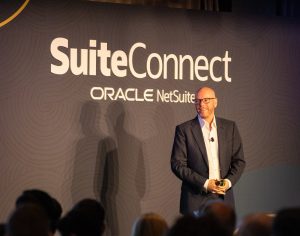With the constant scramble for traction in the social networking space and the likes of Facebook dropping $3bn offers on tech services like Snapchat, most of us are keeping our beady eyes peeled for the next big thing. And after global enterprise software company Autonomy became the largest technology acquisition Britain has ever seen – selling for $10.3bn to Hewlett Packard (HP) in 2011 – there can be few people in Britain right now who are better placed to give us a few pointers where to look than its founder and former CEO Dr Mike Lynch.
“Obviously if I really knew the name of the company I wouldn’t tell you,” Lynch quipped when asked during last night’s keynote at the Cass Business School.
Responding to our question regarding whether we’re more likely to see a unicorn coming out of the much ballyhooed Tech City or from the labs of Cambridge University, he commented: “The debate about Silicon Fen versus Silicon Roundabout is an interesting one.”
In Lynch’s opinion, the key is not to pit these tech talents against each other but understand the strengths that make the UK tech scene unique, with Cambridge offering incredible fundamental technologies and the Silicon Roundabout crew providing top business acumen and branding. “The simple answer is: ‘for heaven’s sake, get on a train’,” he continues. “Get some of the great fundamental technology coming out of Cambridge and bring it to the creative minds of Shoreditch.”
Lynch did, however, drop a few hints about the areas Autonomy’s ertswhile management team might now be looking into, now they have once more joined forces after their acrimonious split from HP. He explained: “What we’re doing now is trying to be naive enough to find great technologies and bring knowhow to deal with them.”
And the team are certainly forward looking, striving forward into areas that are, thus far, still largely terra incognita. “Cyber-security is an amazing area because it’s completely unsolved,” Lynch said. “If we were an organism, we’re walking around with no immune system at all.” Augmented reality and the potential for genetic sequencing to provide personalised treatment for diseases such as cancer are also spaces piquing the tech team’s interest. ![]()
Share via:


















































